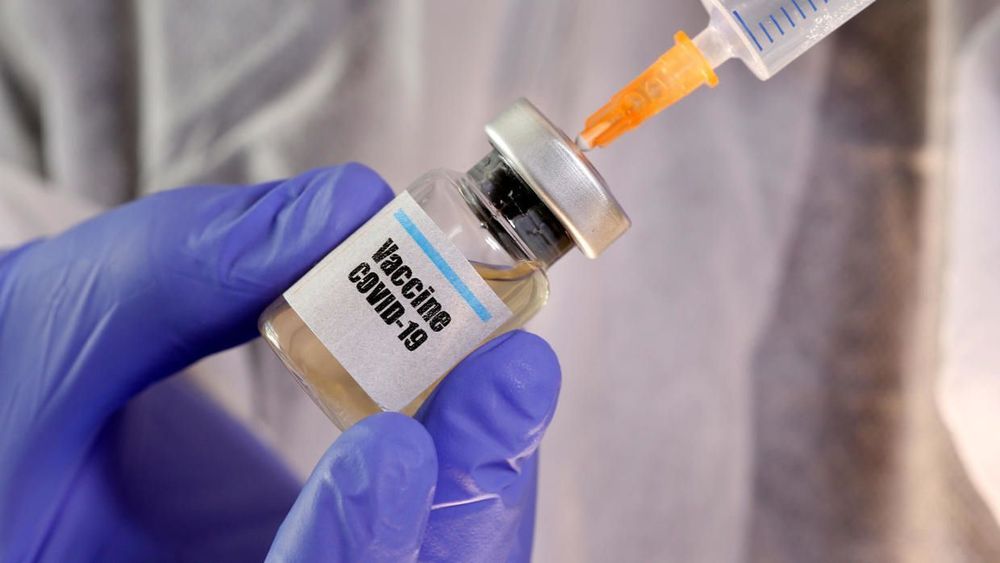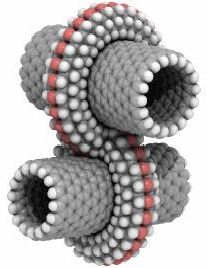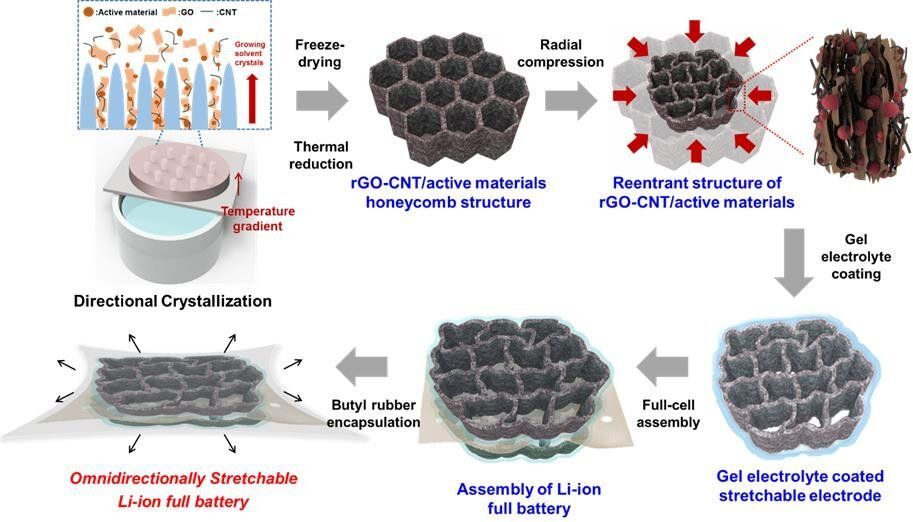AstraZeneca will make and distribute Oxford University’s coronavirus vaccine if it proves effective.




‘Through advances in medical devices and synthetic biology, DARPA’s new Advanced Acclimation and Protection Tool for Environmental Readiness (ADAPTER) program aims to develop a travel adapter for the human body, an implantable or ingestible bioelectronic carrier that can provide warfighters control over their own physiology. The integrated system will be designed to entrain the sleep cycle – either to a new time zone or back to a normal sleep pattern after night missions – and eliminate bacteria that cause traveler’s diarrhea after ingestion of contaminated food and water,’ reads a DARPA statement on the new device.”
The adapter is meant to regulate sleep patterns and protect against diarrhea.


Not long ago nanotechnology was a fringe topic; now it’s a flourishing engineering field, and fairly mainstream. For example, while writing this article, I happened to receive an email advertisement for the “Second World Conference on Nanomedicine and Drug Delivery,” in Kerala, India. It wasn’t so long ago that nanomedicine seemed merely a flicker in the eyes of Robert Freitas and a few other visionaries!
But nano is not as small as the world goes. A nanometer is 10−9 meters – the scale of atoms and molecules. A water molecule is a bit less than one nanometer long, and a germ is around a thousand nanometers across. On the other hand, a proton has a diameter of a couple femtometers – where a femtometer, at 10−15 meters, makes a nanometer seem positively gargantuan. Now that the viability of nanotech is widely accepted (in spite of some ongoing heated debates about the details), it’s time to ask: what about femtotech? Picotech or other technologies at the scales between nano and femto seem relatively uninteresting, because we don’t know any basic constituents of matter that exist at those scales. But femtotech, based on engineering structures from subatomic particles, makes perfect conceptual sense, though it’s certainly difficult given current technology.
The nanotech field was arguably launched by Richard Feynman’s 1959 talk “There’s Plenty of Room at the Bottom.” As Feynman wrote there.

U.S. Secretary of State Michael Pompeo said “enormous evidence” shows the novel coronavirus outbreak began in a laboratory in Wuhan, China, but didn’t provide any proof for his claims.
“I can tell you that there is a significant amount of evidence that this came from that laboratory in Wuhan,” Pompeo said on ABC’s “This Week.” “These are not the first times that we’ve had a world exposed to viruses as a result of failures in a Chinese lab.”
Pompeo stopped short of saying the virus was man-made, noting that he agreed with a report by the Office of the Director of National Intelligence that ruled out genetic modification or it having been man-made.

The COVID-19 pandemic is a stark reminder that we move through a world shaped by unseen life. Bacteria, viruses, and other microscopic organisms regulate the Earth’s vital functions and resources, from the air we breathe to all our food and most of our energy sources. An estimated one-third of the Earth’s microbes are literally hidden, buried in sediments deep below the ocean floor. Now, scientists have shown that these “deep biosphere” microbes aren’t staying put but are bubbling up to the ocean floor along with fluids from buried petroleum reservoirs. These hitchhikers in petroleum seeps are diversifying the microbial community that thrives at the seafloor, impacting deep-sea processes, such as carbon cycling, that have global implications.
“This study confirms that petroleum seeps are a conduit for transporting life from the deep biosphere to the seafloor,” says co-author Emil Ruff, a scientist at the Marine Biological Laboratory (MBL), Woods Hole. The study, led by Anirban Chakraborty and Casey Hubert of the University of Calgary, is published this week in Proceedings of the National Academy of Sciences.
The team analyzed 172 seafloor sediment samples from the eastern Gulf of Mexico that had been collected as part of a 2011 survey for the oil industry. A fraction of these samples contained migrated gaseous hydrocarbons, the chief components of oil and gas. These petroleum seeps on the ocean floor harbored distinct microbial communities featuring bacteria and archaea that are well-known inhabitants of deep biosphere sediments.

As the novel coronavirus swept through communities around the world, preying disproportionately on the poor and the vulnerable, one disadvantaged group has demonstrated a remarkable resistance. Women, whether from China, Italy or the U.S., have been less likely to become acutely ill — and far more likely to survive.
Which has made doctors wonder: Could hormones produced in greater quantities by women be at work?
Now scientists on two coasts, acting quickly on their hunches in an effort to save men’s lives, are testing the hypothesis. The two clinical trials will each dose men with the sex hormones for limited durations.
Last week, doctors on Long Island in New York started treating Covid-19 patients with estrogen in an effort to increase their immune systems, and next week, physicians in Los Angeles will start treating male patients with another hormone that is predominantly found in women, progesterone, which has anti-inflammatory properties and can potentially prevent harmful overreactions of the immune system…spoiler alert it most likely is progesterone.
Men are more likely than women to die of the coronavirus, so scientists are treating them with something women have more of: female sex hormones.

A Korean research team has developed a lithium-ion battery that is flexible enough to be stretched. Dr. Jeong Gon Son’s research team at the Photo-Electronic Hybrids Research Center at the Korea Institute of Science and Technology (KIST) announced that they had constructed a high-capacity, stretchable lithium-ion battery. The battery was developed by fabricating a structurally stretchable electrode consisting solely of electrode materials and then assembling with a stretchable gel electrolyte and stretchable packaging.
Rapid technological advancements in the electronics industry have led to a fast-growing market for high-performance wearable devices, such as smart bands and body-implantable electronic devices, such as pacemakers. These advancements have considerably increased the need for energy storage devices to be designed in flexible and stretchable forms that mimic human skin and organs.
However, it is very difficult to impart stretchability to the battery because the solid inorganic electrode material occupies most of the volume, and other components such as current collectors and separators must also be made stretchable. In addition, the problem of liquid electrolyte leakage under deformation must also be solved, as well as the problem of leaking liquid electrolyte.

